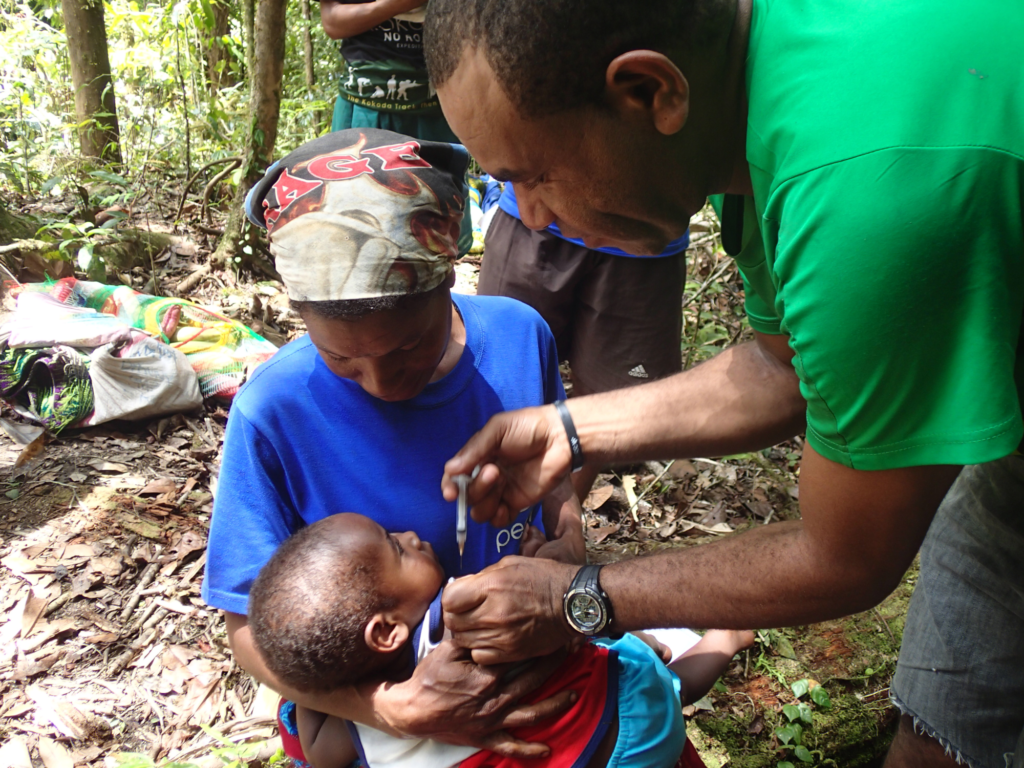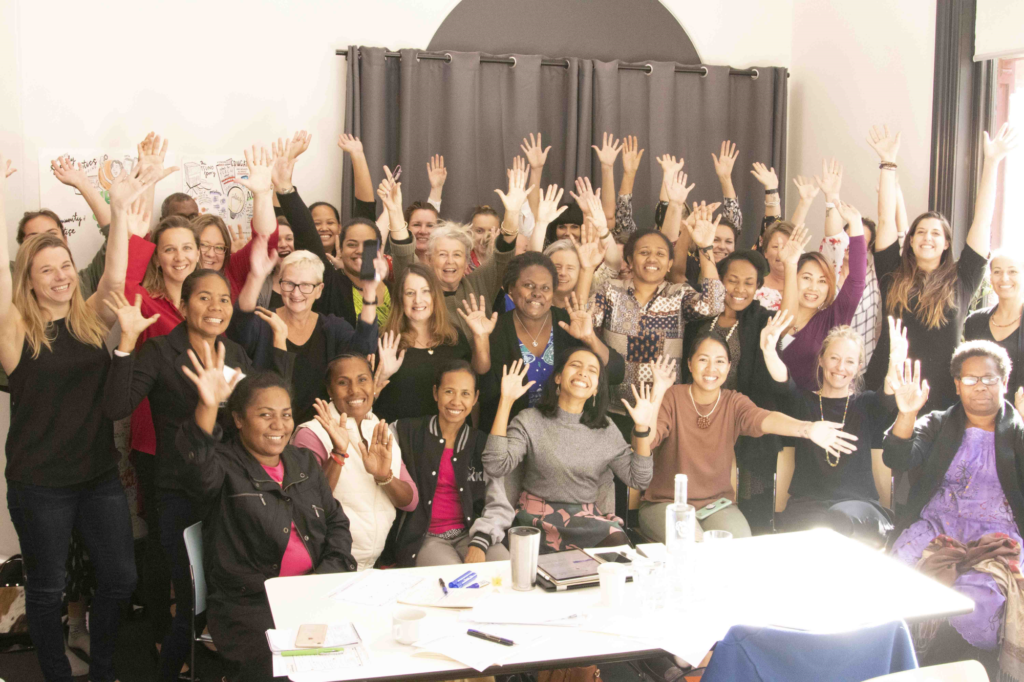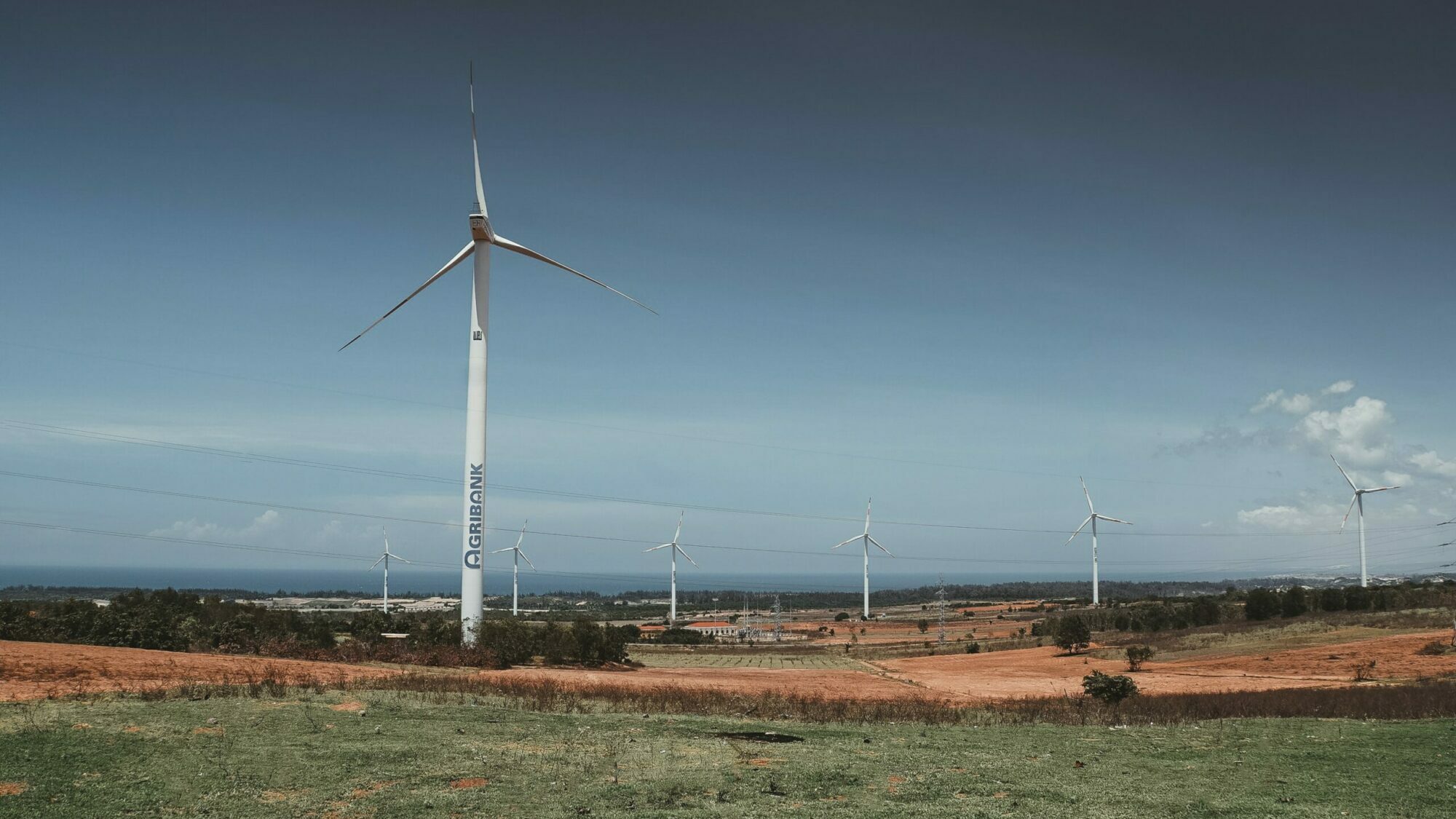
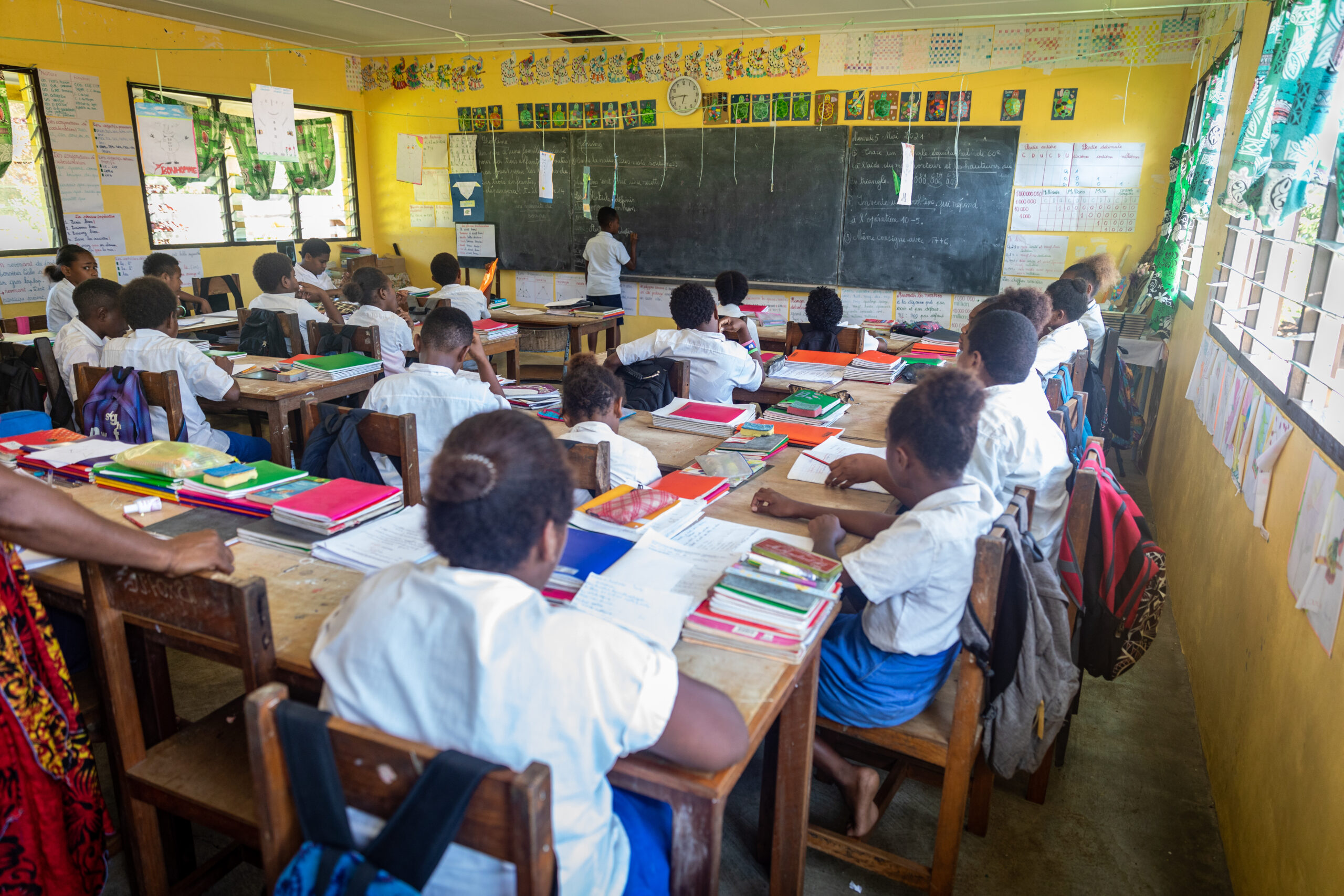
Through the Vanuatu Education Support Program Phase 2 (VESP), Australia are working with the Ministry of Education and Training (MoET) to improve education outcomes in Vanuatu. VESP II is a five-year program that follows the conclusion of VESP Phase 1 in 2019.
At Tetra Tech International Development, when strengthening education capacity in the Asia Pacific region, our work is often focused on delivering vernacular language programs. The importance of establishing early grade programs in mother tongue languages is clear. Research shows that children do better and are more likely to stay in school when learning in their most proficient language. As a country that is linguistically diverse, this is particularly important for Vanuatu. With VESP now in its second phase, the development of vernacular language resources and programs has and continues to result in improved rates of achievement and retention for young learners.
We chat with David Letichevsky, VESP Team Leader, about improving access, quality, and management of education in Vanuatu.
Could you tell us about the work being done through VESP?
Last year, VESP supported the Vanuatu Literacy Symposium, which ran to promote the importance of literacy and allow educators to exchange approaches in promoting literacy. It was attended by a wide audience, ranging from Development Partners, to University students and Church leaders.
In 2020, VESP procured over 24,300 copies of three novels (in English and French) for Grade 6, from Read Pacific and collaborated with a media consultancy to produce literacy curriculum audiobooks for Years 1 to 3.
In addition, VESP have supported MoET staff and school staff training to achieve three end of program goals of improving access, quality and management of education.
VESP has been working with MoET to roll-out a new curriculum from Year 1 all the way to Junior Secondary (Years 7-9). One of three End of Program Outcomes refer to improving students’ scores in literacy, as measured by the Vanuatu Standardized Test of Achievement (VANSTA).
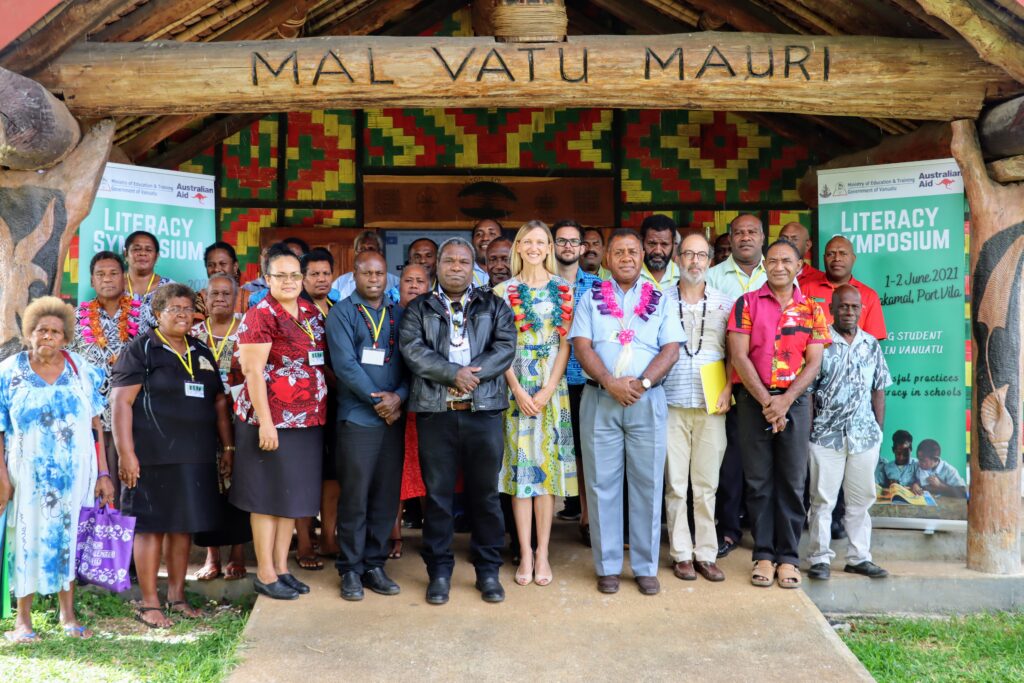
How do resources in vernacular language support early learning?
Vanuatu is a linguistically diverse country. In addition to English, Bislama and French, there are about 140 locally spoken languages in Vanuatu. Research has shown that enabling children to learn in the languages they are most proficient correlates to higher literacy outcomes. VESP is working with MoET to support communities to produce reading resources using their local languages. Together, we have produced over 400 titles in 16 different vernaculars, spoken in three different provinces.
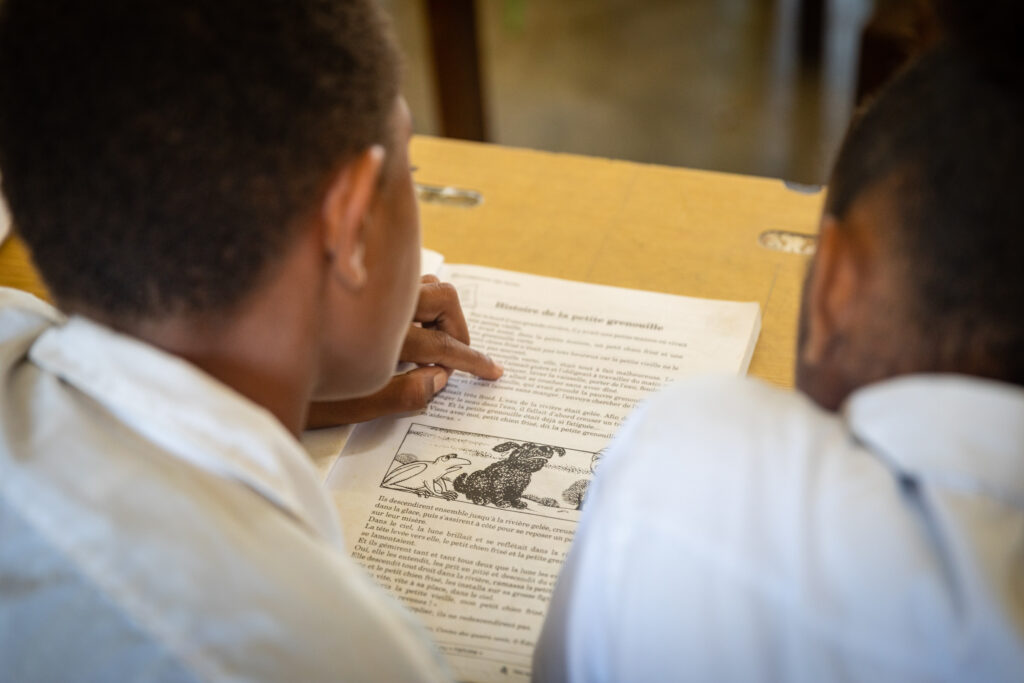
Could you tell us about how literacy outcomes and engagement have been improved?
VESP supports Vanuatu to do the VANSTA, in literacy and numeracy, for Years 4, 6 and 8. These tests are delivered every other year, since 2017. They show that the while the proportion of students meeting or exceeding the minimum literacy scores have decreased from year to year, the given increased enrolment rates, the number of students meeting or exceeding these standards have increased.
VESP is also supporting MoET to engage parents and promote positive parenting skills. Global evidence shows that the strongest predictor of children’s academic outcomes is parental involvement. In this activity we recommend parents to engage in reading for their children, as a positive parental activity.
In addition to this, VESP is also supporting the Ministry’s efforts to improve the quality of its kindies, so they can strengthen children’s school readiness. This includes the establishment of learning corners, where children have access to many resources, including literacy primers.
What does this mean for the retention of younger students in formal schooling?
Research conducted in Vanuatu indicates that children with higher scores in standardized tests are less likely to abandon school. We have evidence showing that children that scored high in the VANSTA are less likely to abandon school. This replicates global findings and points to the importance we put in helping all children to learn.


